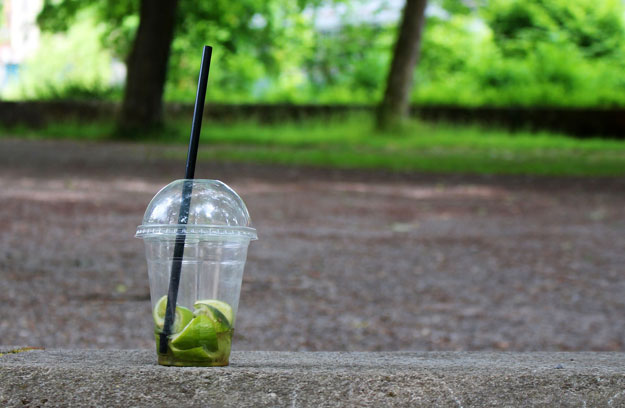
By 2020, all disposable dishware sold in France must be compostable.
This week I learned about two exciting sustainability updates from Europe:
- France passed legislation banning disposable dishware and cutlery. By 2020, all disposable dishes sold in France must be made of biologically-sourced materials and be compostable.
- Sweden introduced legislation dramatically cutting taxes on repair work to encourage people to fix rather than replace broken items.
When we see another nation pass groundbreaking legislation, our initial reaction is often to say, “The U.S. should do the same thing!” I don’t think most people who express this sentiment are saying the system that works in XYZ country should be applied to the U.S. exactly as-is with no adjustments. So when we say we want the U.S. to follow another country’s suit, what are we really asking for?
I think the main thing people yearn for the U.S. to emulate about these laws is a willingness to take clear and decisive action on waste and the environment. Requiring disposable dishware to be compostable is bold, concrete, and clear in its goal. It’s ambitious yet attainable. The only comparable legislation in the U.S. has been regional bans on plastic bags and styrofoam, but nothing as clear and concrete as France’s law has been gone into effect at a state or federal level.*
(The more I think about France’s new law, the more I love it. It doesn’t eliminate a product or industry, but rather modifies them, which could head off concerns about potential job loss. It also supports the creation of a more robust composting infrastructure, which should make composting of other materials more accessible as well, and it increases production of an agriculturally useful product. Is it possible to have a crush on a piece of legislation?)
Beyond the desire for the U.S. to take decisive action, I think people have a desire to know that the U.S. is even paying attention to these programs around the world, and is studying them to learn whether similar programs could work here. Our tax structure is different than Sweden’s, but how could we incentivize repairing over replacing within our system? What are the results of Sweden’s plan—does it actually yield a change in consumer behavior? In France, how will they educate consumers about the changes to familiar products? Sustainability-minded citizens in the U.S. would be heartened to know that someone here is at least taking advantage of the opportunity to learn from other nations’ programs.
The responsibility to learn from these programs and take decisive action on waste isn’t limited to the government, especially given how entwined the private sector is with policy in the U.S. Private businesses also have a responsibility to reject the status quo and pilot progressive solutions within their own operations. Arguably, a company like Apple taking a stand on a particular type of waste could have a greater impact than a small country doing the same. When corporations operate at a massive global scale, their responsibility is just as great as governments’.
And at the very minimum, we want the United States to not actively prohibit progressive action for the environment. Indiana’s recent ban on plastic bag bans comes to mind as an example of action whose spirit is the complete opposite of these two European laws. Arizona, Idaho and Missouri have similar laws. When you live in a world where your legislators take such big steps backward, a world of all compostable cups seems like an unattainable fantasy.
You may have noticed that the United States is not the most agile in terms of political or social change right now. While that’s certainly not an excuse for inaction, perhaps smaller countries are currently better positioned to be groundbreaking and take the dramatic steps forward the planet needs. If enough smaller players take those first steps, it may be easier for the U.S. to follow suit and create programs that are truly effective. We would have case studies to learn from, and systems would already be in place for us to take advantage of or emulate.
And because the U.S. is so much larger than most of the countries that implement progressive sustainability programs, individual states (or companies) within the U.S. may be better suited to learn from those programs and develop their own. The smaller the body, the more flexible and innovative it can be.
So, Indiana—now you know about the sustainable ground being broken in France and Sweden. What are you going to learn from it?
*Hawaii has a de facto plastic bag ban because all of its counties enacted bans, and California’s plastic bag ban is under a referendum on Nov. 8. The District of Columbia enacted a plastic bag ban in 2009.

Changes Are Coming |
[…] certainly have changed since I wrote my last post (the federal government doesn’t look like it will be taking notes from European […]